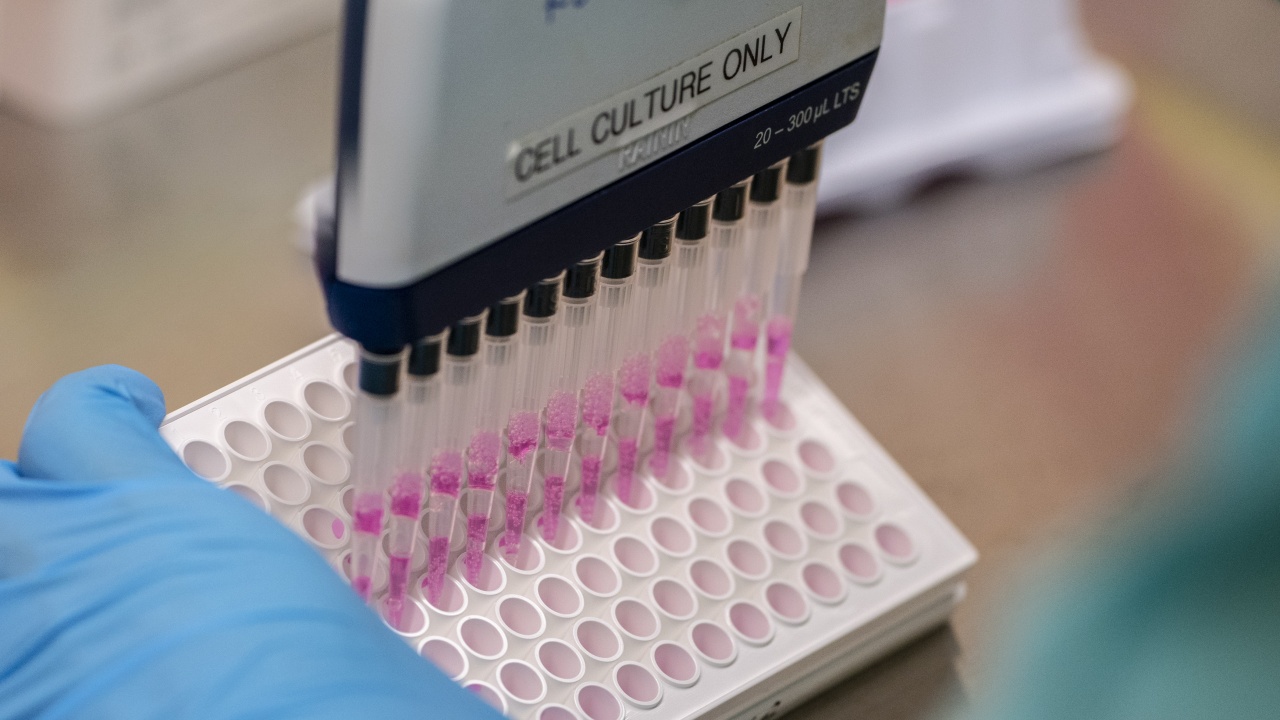Scientists from Canada and the United States have developed a test that can be used to track the level of antibodies against the different variants of the SARS-CoV-2 virus that causes COVID-19, reported the electronic publication Euricalert, quoted by BTA.
All about the topic:
The epidemic of coronavirus (COVID-19) 31709
The experts found that the antibodies of people who were vaccinated and/or recovered from the infection before 2022 failed to neutralize the currently circulating varieties.
"The truth is that we still don't know how often a vaccine should be administered to prevent infection," explains Canadian expert Igor Staglar, professor of biochemistry and molecular genetics at the University of Toronto.
He is the head of the study.
"To answer these questions, we need quick, cheap, and quantitative tests that specifically measure the level of SARS-CoV-2 virus-neutralizing antibodies—those that prevent infection."
Sean Owen, associate professor of pharmacy and pharmaceutical chemistry at Utah State University, also participated in the study.
Using a new method, the developed test shows the ability of the spike protein of the virus to bind to the ACE2 receptor, through which the infection enters cells.
Many similar tests have been developed in the past two years, but few of them are for the neutralizing antibodies that prevent the virus from spreading.
"Our method, which we named Neu-SATiN, is very accurate, fast and cheap..., and can be quickly adapted to new variants as they appear," explains Igor Stagliar.
Scientists applied Neu-SATiN to blood samples collected from 63 patients with varying severity of COVID-19 relapse and vaccination until November 2021. The neutralizing ability was evaluated against the original Wuhan strain and the Alpha, Beta, Gamma, Delta and Omicron varieties.
"We thought it was important to monitor people who had been vaccinated to see if they still had protection and how long it lasted," says Owen.
"We also wanted to see if immunization against one variant provided protection against another."
There are 314 new cases of coronavirus in our country
Neutralizing antibodies have been found to persist for about three to four months, after which their levels drop by about 70 percent, regardless of relapse or vaccination status.
In hybrid immunity acquired by both re-infection and vaccination, the level of antibodies was higher at the beginning, but also decreased significantly four months later.
Most worryingly, infection and/or vaccination provided good protection against the previous variants, but not against Omicron or its BA.4 and BA.5 sub-variants, the experts noted.
"It is important to emphasize that vaccines still provide significant protection against severe disease and death," Staglar said.
Still, he and his colleagues urge vigilance, as the more easily spread subvariants BA.4 and BA.5 can bypass immunity acquired from earlier infections with the Omicron variety.
"There will certainly be new options in the near future," Staglar said.
"Surveillance and enhancement of immunity to circulating variants will become increasingly important, and our method can play a key role in this as it is fast, accurate, quantitative and inexpensive."
The researchers expect that the antibody test developed will become a valuable tool in deciding who needs a booster dose of the vaccine and when.
This will help save lives and avoid the introduction of serious restrictions, experts say.
The scientists from Canada and the USA have described their development in the publication "Nature Communications".
More about Coronavirus
latest: See the latest news
easy steps: How to protect yourself?
a simple guide: What are the symptoms?
The coronavirus (COVID-19) epidemic
scientific research
coronavirus
antibodies
